Taking a seat with Carolina’s researchers
Pull up a chair and meet a few of Carolina's graduate students who are working to improve the lives of North Carolinians.
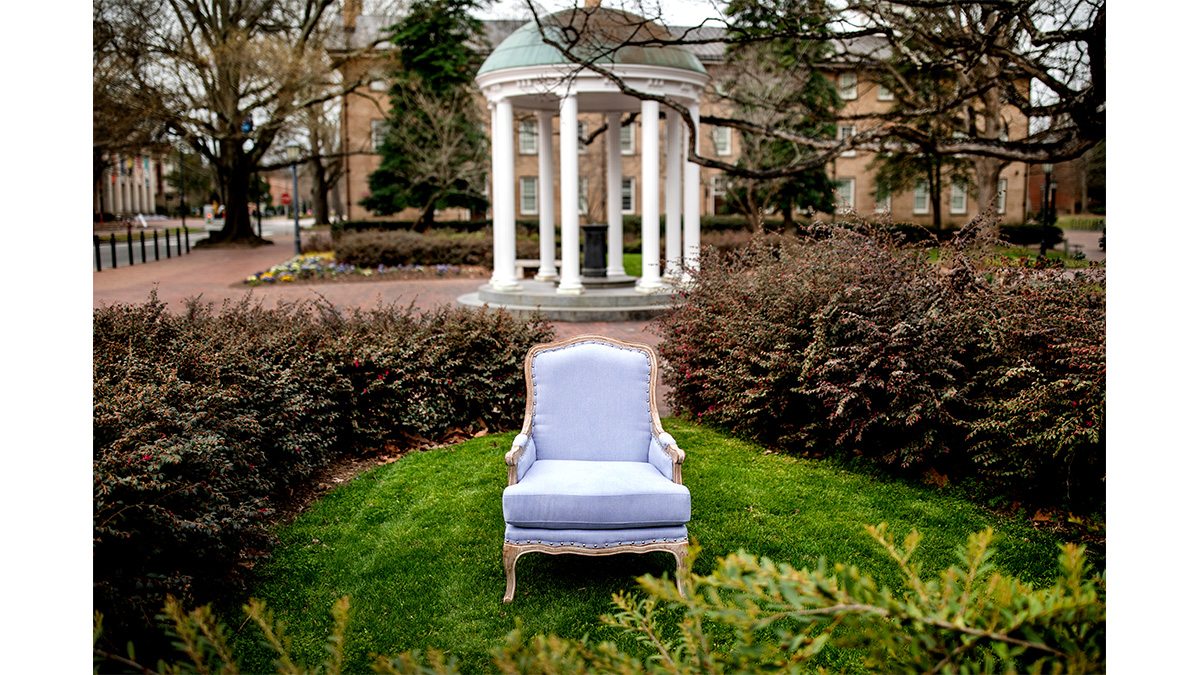
Behind Carolina’s research mission and its dedication to serving all North Carolinians are the University’s graduate students.
From Morehead City to Burlington and beyond, graduate students are delving deep into major issues impacting our state and are coming up with innovative solutions through research.
Pull up a chair and meet the next generation of North Carolina’s leaders.
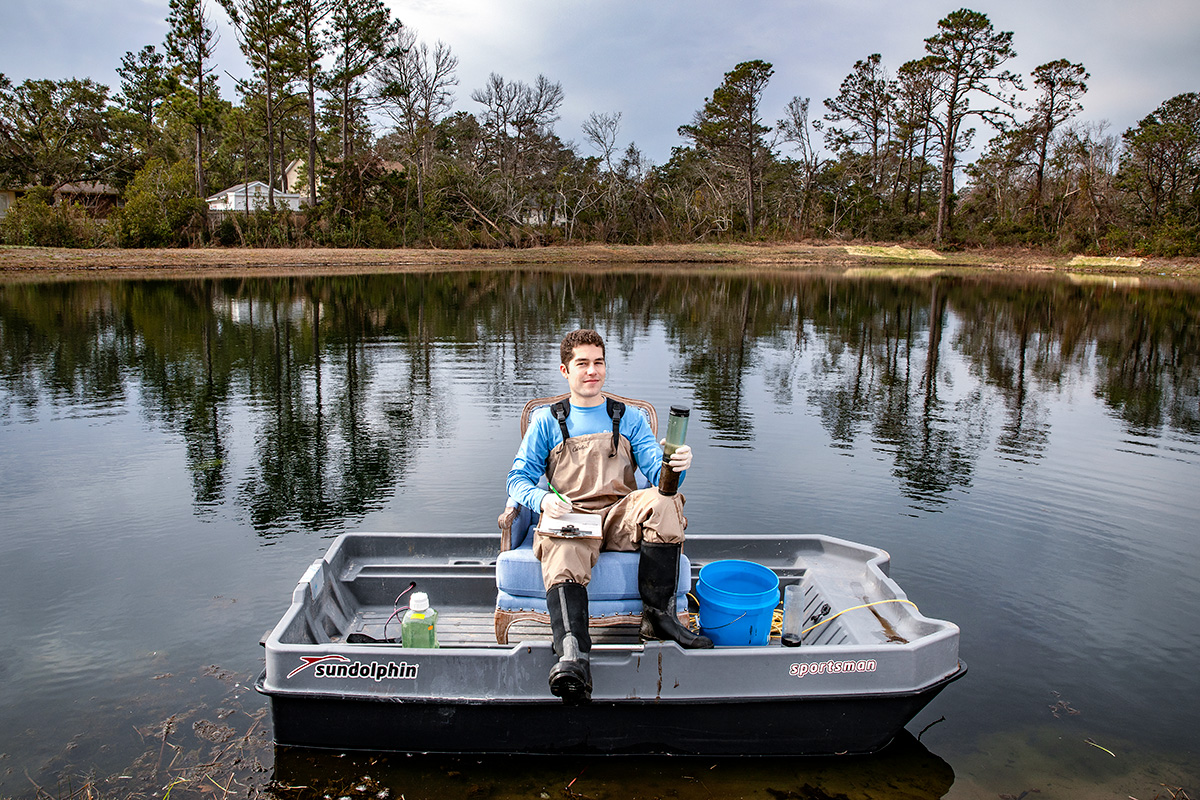
Adam Gold, ecology
“I chose to study water because it is essential to life, but there are also a lot of water-related problems. I have always wanted my work to have a positive impact on the environment and people’s lives, and I think that solving water-related problems will do that.”
As a doctoral candidate in the College of Arts & Sciences‘ Environment, Ecology and Energy program, Gold is working to keep North Carolina’s coastal waters healthy. His research examines how urban land use affects coastal water quality and how stormwater ponds are processing pollutants as they collect runoff.
Gold conducts his research alongside Michael Piehler, the director of the UNC Institute for the Environment and a professor at the Institute of Marine Sciences in Morehead City, North Carolina. The team collects mud samples from the bottom of stormwater ponds to measure the gases and chemicals that are absorbed and released by the mud.
Their work to understand how pollutants are being processed has the potential to improve urban water quality.
“Results from my research will have a positive impact on the health of coastal waters by helping urban areas in the coastal plain mitigate the negative ecological effects of stormwater runoff,” Gold said.
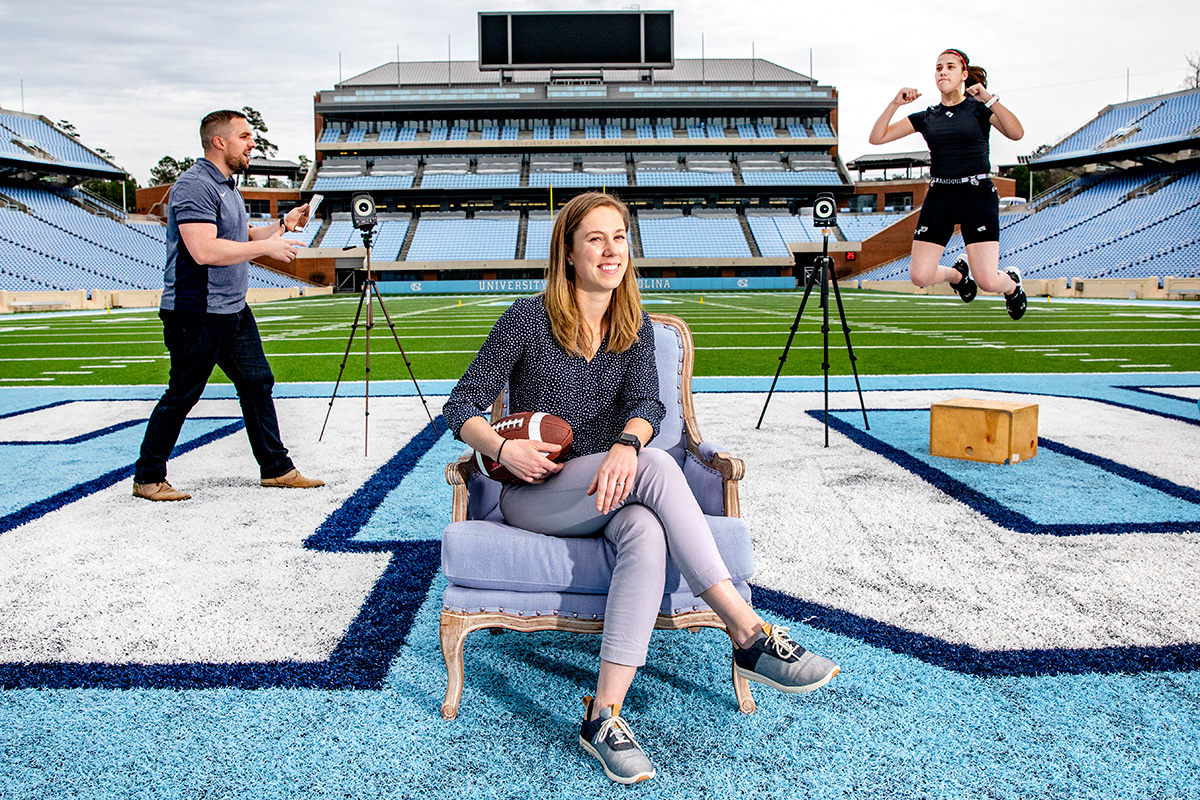
Hope Davis, human movement science
“I’m invested in helping athletes not only successfully return to their sport, but also remain physically active for their entire lives.”
Whether you’re a world-class athlete competing in Kenan Stadium on Saturdays or a cheering parent on the sidelines of a youth football game, healthy knees keep you moving.
Davis is using cutting-edge research to examine how biomechanics — the way we walk, run and jump — influence our knee joints. In the College of Arts & Sciences’ exercise and sport science department, she uses 3D motion capture technology with infrared cameras and retroreflective body markers to measure forces and torques that are experienced during a given activity. She also utilizes ultrasound and magnetic resonance imaging software to analyze knee cartilage composition and structure.
With that information, as well as data from body impact on embedded treadmill force plates, Davis is finding a better way to help people recover after knee injuries and prevent the possible onset of osteoarthritis.
“The most rewarding part of my job is getting to work with high school and college athletes following their knee injuries who are very excited to get back to their previous levels of physical activity,” she said.
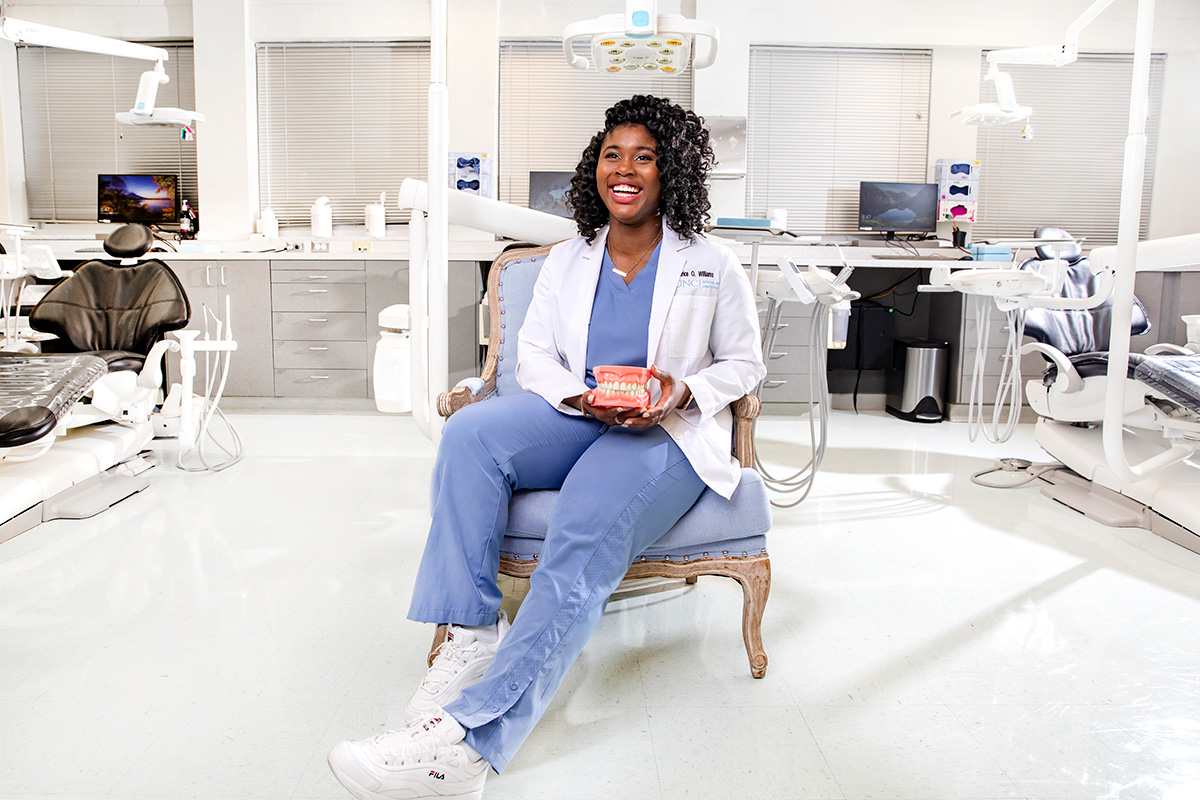
Beatrice Williams, dentistry
“Dentistry is an amalgam of my favorite things: science, art, business and communications. This profession provides the opportunity for me to use my varied interests to be a hands-on agent of change.”
For Williams, a mouth is more just teeth for chewing and muscles for talking. It’s “the portal to the body” and a critical aspect of overall health.
That’s especially true, she said, for the more than 35,000 North Carolinians who are living with HIV — a high percentage of whom are living in impoverished areas and may not have access to health care resources. With her philosophy in mind, Williams is working to determine how proper dental care can improve the overall health of this population.
Her research at the UNC Adams School of Dentistry shows that North Carolinians with HIV can improve their mental and physical health just by going to the dentist — a finding she believes can empower patients to take control of their oral and systematic health.
“I have witnessed firsthand the health and social impacts that arise from the lack of access to dental care in the lives of my loved ones,” she said. “We have the honor of treating patients who are more diverse than ever before, and I believe that having providers with diverse perspectives and experiences, who can advocate for the diverse needs of their patients, is crucial for patient-centered care.”
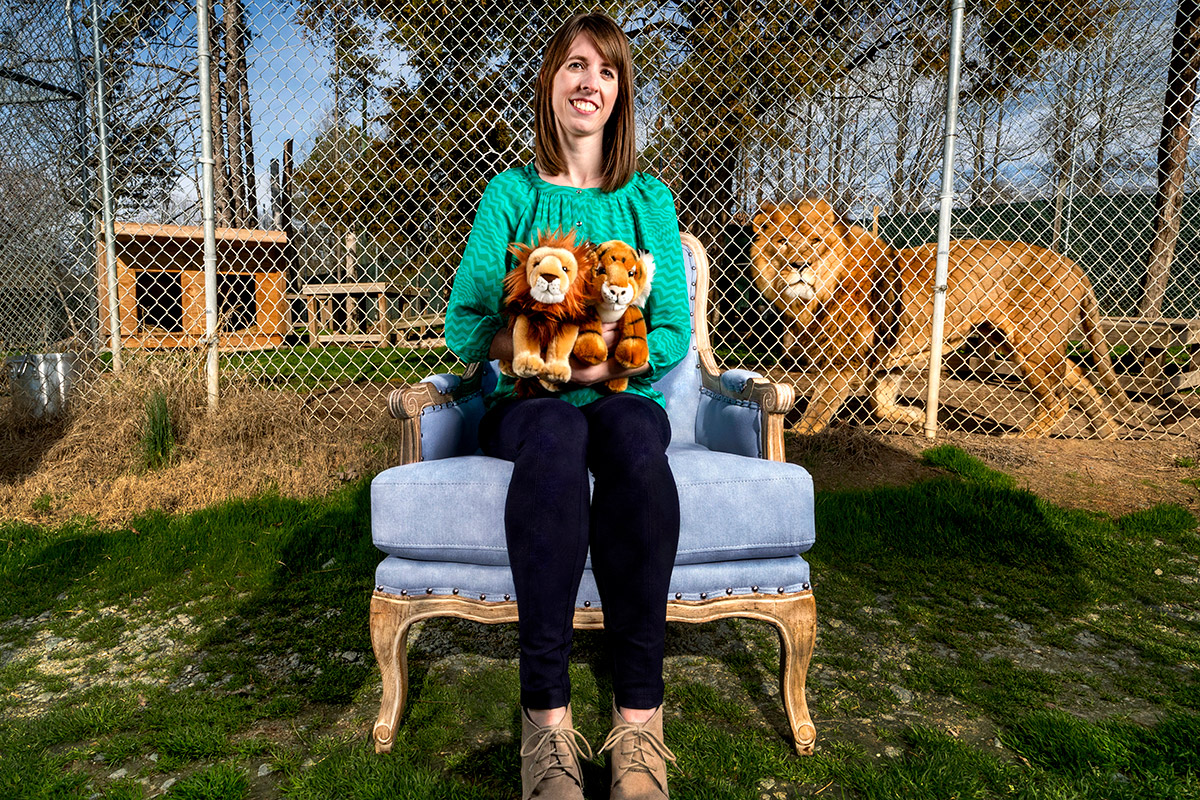
Jordan McNeill, education
“I want to be a researcher whose work really matters, whose work will make its way into schools and beyond schools.”
As a doctoral student at the School of Education studying special education, McNeill has used what she has learned at Carolina to help make Burlington, North Carolina’s Animal Park at Conservators Center enjoyable and accessible for all. The community zoo has become central to McNeill’s identity as a young researcher.
Her first semester as a doctoral student in the Applied Developmental Science and Special Education program proved significant. The seminar “Translational Research and Implementation Science” meant that in addition to what she learned in the classroom, she would need to apply research in a way that improved a community organization and the lives of people associated with it. She chose the Animal Park, and a single question guided her and her classmates: How can we help everyone — regardless of disability — access everything the park offers?
“Unlike a lot of zoos, you don’t just wander the park, and you get to see the animals from five feet away,” she said. “We operate with guided tours because education is a primary part of the park’s mission. There’s a lot of opportunity to make accommodations for people with special needs. A tour guide has the power to make a tour more tailored to you, and for a lot of people that means a more accessible experience.”
She provided accessibility trainings for the park’s staff members and volunteers, and helped rethink the language of many of the park’s policies.
McNeill plans to continue working with special education teachers to understand their perceptions of the evidence-based best practices and interventions provided by researchers and then to provide them with tools to best implement — and potentially adapt — those practices.
Read more about McNeill’s research on the School of Education website.




